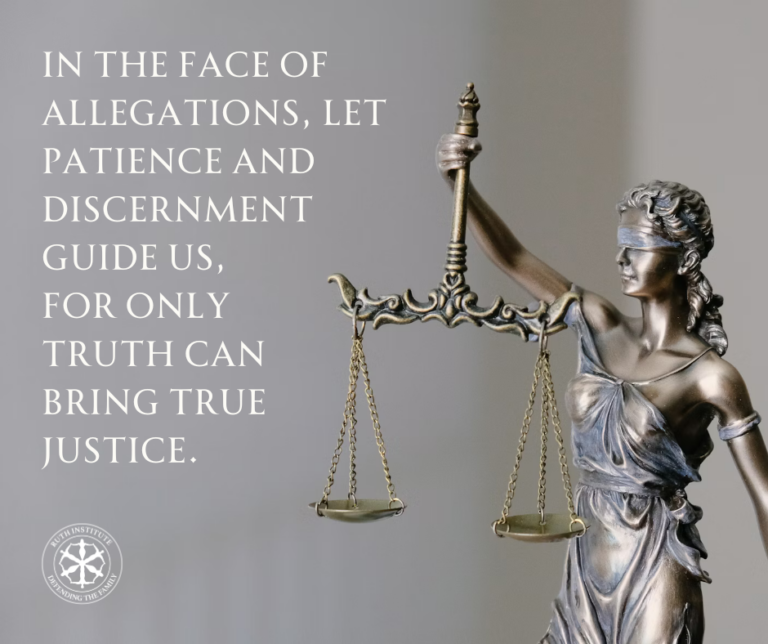by Dr. Jennifer Roback Morse
This article was published November 12, 2018 at National Catholic Register.
COMMENTARY: Church leadership won’t solve this current crisis unless it confronts homosexual practice among the clergy and especially the networks of homosexually oriented clergy operating to protect each other.
I hesitate to wade into areas in which I have no direct information. But I feel compelled to point out the illogic of continuing to claim that the current
clergy sex abuse and cover-up scandal is unrelated to homosexual activity among Catholic priests.
At this late date, too much circumstantial evidence has emerged to ignore: This crisis would not exist, but for homosexual practice among the clergy and
especially the networks of homosexually oriented clergy operating to protect each other.
The most recent denial of the obvious comes to us from longtime Vaticanista and editor of La Stampa, Andrea Tornielli. In an under-reported
article from Sept. 14, he asks: “Is the root, the origin of the problem of abuse really to be found in the homosexuality of priests?” He replies:
Even for McCarrick’s case, in fact, the problem is clericalism, the abuse of power and conscience, which comes before sexual abuse and is committed
by people — priests or bishops — who can never be considered equal to their victims, on whom they exert an influence and often a subtle
or obvious form of blackmail. … No, McCarrick did not have homosexual relations. He harassed and abused seminarians in the name of his episcopal
power, making them understand that going to the beach house with him and submitting to his attention was an obligatory step to be better known
to him and to land a priestly ordination.
This statement is remarkable on multiple levels. First, he claims that Archbishop Theodore McCarrick did not have homosexual relations. I do not know how
Tornielli knows this. Second, Tornielli argues against a position that no serious person holds. No one denies that Archbishop McCarrick and others
abused their power and authority. I oppose this corruption, as does everyone I know or associate with.
The important unanswered question, hiding in plain sight like Edgar Allen Poe’s purloined letter, is this: To what purpose did McCarrick abuse his power?
His goal was evidently, at least in part, the pursuit of illicit sexual stimulation. Perhaps he enjoyed having people under his thumb and within his power:
That is often part of the profile of an abuser. But we have no basis at all for claiming that sexual activity itself was of no interest to him or had
no casual role in his decadeslong pattern of behavior.
Tornielli asks, “Are those who today are whizzing around minimizing child abuse — as if it were a secondary problem — right to focus it all
on homosexuality?”
Data from the John Jay Reports in 2004 and 2011,
from the Pennsylvania grand jury report, and from the recent
report on German clergy
sex abuse all conclude that at least 80% of the cases involved teenaged boys, not girls, not prepubescent children. Let me turn Tornielli’s question
around: How long are we going to avoid confronting that 80% figure?
We now have two additional pieces of evidence to show the significance of homosexual behavior in the priesthood. The first is the new study conducted by Father Paul Sullins, Ph.D., and published by my organization, the Ruth Institute. In that study, summarized in this two-page backgrounder,
Father Sullins finds that the incidence of clergy sexual abuse is strongly correlated with both the number of priests claiming a homosexual orientation
and the percentage of priests claiming that a “homosexual subculture” existed in their seminaries.
Even more troubling, the study indicates that the incidence of clergy sexual abuse has increased since 2002 and is now comparable to levels in the 1970s.
The second piece of important evidence comes from testimony of Father Boniface Ramsey in Commonweal.
Father Ramsey reports that during his tenure as a faculty member at Immaculate Conception Seminary in New Jersey, he persuaded the faculty to expel
a seminarian. He reports:
When I returned to the seminary to begin the next academic year, the rector told me that McCarrick knew that I was largely responsible for the expulsion
of the seminarian in question, and that in consequence he had removed me from the voting faculty. I have come to realize, in retrospect, that McCarrick
must have learned this from another member of the voting faculty who was present, and that this was a breach of confidence. …
When he described this situation to another cleric, he received a surprising response:
I recall what he said — that “we all know” that McCarrick had “picked up” someone at an airport. From what I understand, McCarrick had met a
good-looking flight attendant and invited him to become a seminarian then and there. (I’ve been told this was not the only such spontaneous invitation.)
Whether this person shared McCarrick’s bed at the beach house or anywhere else, I don’t know, but he was clearly significant enough in McCarrick’s
eyes for McCarrick to fire me when I led the charge to have him expelled.
Let us concede that Archbishop McCarrick abused his power and authority, on multiple levels, in this situation. But to what end? Let’s review:
- He “picked up” an attractive male flight attendant.
- He invited him to join the seminary.
- He had a “mole” on the faculty who breached the confidence of the committee charged with evaluating seminarians.
- He punished Father Ramsey for dismissing his favored seminarian.
- Archbishop McCarrick had made other “spontaneous” invitations to join the priesthood.
You can believe what you want to believe. I’ll believe what I want to believe. I believe then-Archbishop McCarrick’s patterns of sexual preference and
behavior were relevant. I also believe he had a “network” of people who were morally compromised in one way or another, who helped him accomplish his
abuses of power.
No one is minimizing the harm to little girls and boys or to teenaged girls. We want to get to the bottom of this crisis. We want to root out the abusers
and the structures that allowed their abuse to continue. We can’t accomplish this unless we confront the 80% figure squarely in the face.
Jennifer Roback Morse, Ph.D., is the founder and president of the Ruth Institute, which equips people to defend traditional Christian sexual morality.
She is the author of The Sexual State: How Elite Ideologies Are Destroying Lives and Why the Church Was Right All Along.



